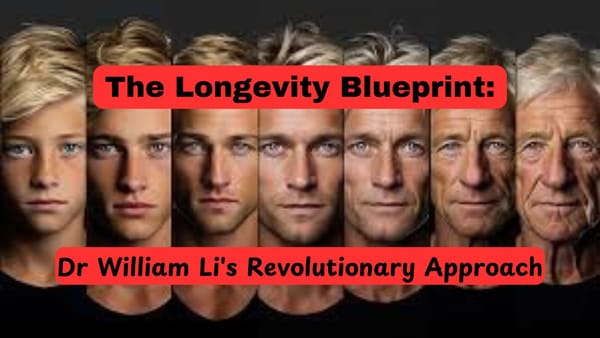Vision Guardians: Unravelling the Mystery of Macular Degeneration
Macular Degeneration is the leading cause of irreversible vision loss in older adults, with 196 million people worldwide having the disease by 2020.

Introduction
Vision is our window to the world, and it can be very frightening when that window begins to blur. Macular degeneration impacts millions worldwide, challenging our understanding of eye health and pushing medical research to new frontiers. This article explores the intricacies of macular degeneration, offering hope, insight, and practical guidance for those concerned about this vision-threatening condition.
What is Macular Degeneration?
Macular degeneration is a complex eye disorder that primarily affects the macula, the central part of the retina responsible for sharp, detailed vision. Age-related Macular Degeneration (AMD) is the most prevalent form, typically impacting individuals over 60. This condition doesn't just affect numbers—it affects lives, making everyday tasks like reading, driving, and recognizing faces increasingly challenging.
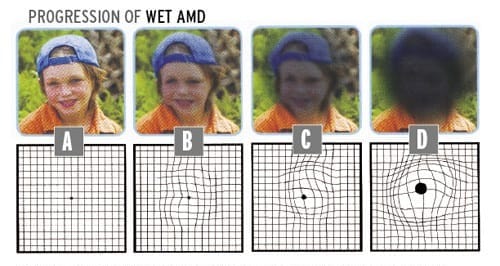
Types of Macular Degeneration
There are two primary types of AMD:
- Dry AMD: The most common form, accounting for approximately 80-90% of cases. It progresses slowly and gradually breaks down light-sensitive cells in the macula.
- Wet AMD: Less common but more aggressive, this type occurs when abnormal blood vessels grow under the retina, leaking fluid and causing rapid vision loss.
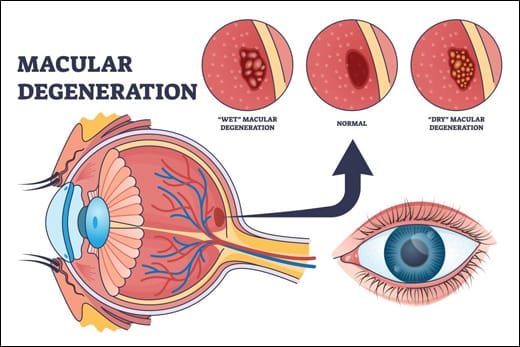
Prevalence and Impact
Staggering statistics reveal that AMD is the leading cause of irreversible vision loss in older adults. Millions worldwide live with this condition, making it a significant public health concern that demands attention and understanding.
Prevention Strategies: Empowering Your Eye Health
While MD can't always be prevented, several strategies can significantly reduce your risk:
- Dietary Interventions
Your plate can be your first line of defence. Consider incorporating:
- Leafy green vegetables like spinach and kale
- Fatty fish rich in omega-3 fatty acids
- Nuts and seeds
- Citrus fruits
- Foods high in lutein and zeaxanthin:
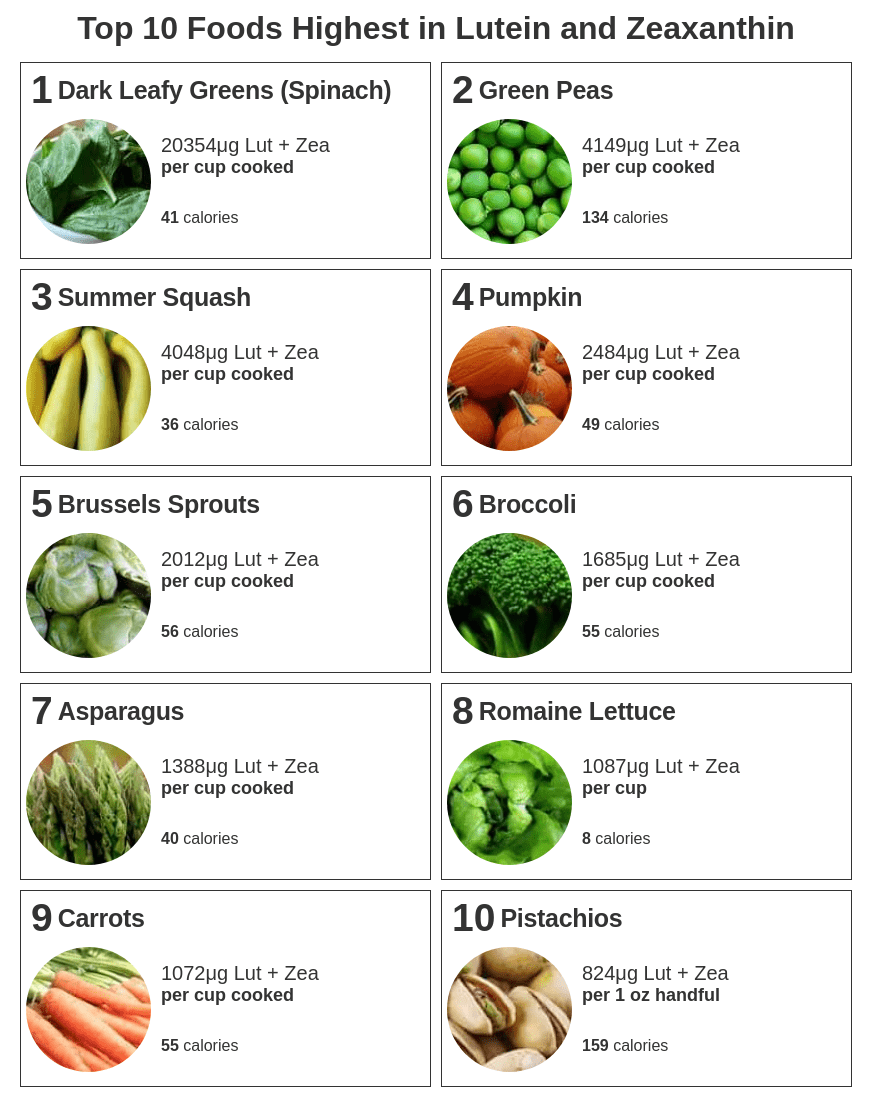
These nutritional powerhouses contain essential vitamins and minerals that support eye health, potentially slowing AMD progression.
- Lifestyle Modifications
- Quit Smoking: Perhaps the most impactful change you can make. Smoking dramatically increases AMD risk.
- Protect Your Eyes: Wear sunglasses with comprehensive UV protection.
- Exercise Regularly: Maintain a healthy weight and stay physically active.
- Regular Eye Exams: Early detection is crucial in managing macular degeneration.
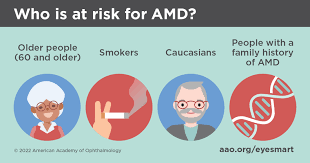
- Supplementation
The Age-Related Eye Disease Study (AREDS) has shown that specific supplement formulas can help slow the progression of AMD in individuals at higher risk.
Real-Life Stories of Hope and Resilience
While a complete "cure" for macular degeneration remains elusive, several remarkable stories demonstrate the potential for managing and significantly improving the condition:
The Lifestyle Transformation Story: Margaret's Journey
Margaret Thompson, a 68-year-old retired teacher from Portland, Oregon, received a devastating diagnosis of early-stage dry AMD in 2018. Instead of accepting inevitable vision loss, she embarked on a comprehensive lifestyle overhaul:
- Dietary Intervention: Margaret completely restructured her diet to include:
- Daily servings of dark leafy greens
- Increased omega-3-rich fish
- Elimination of processed foods
- Supplement Regimen: She began a targeted supplement protocol recommended by her ophthalmologist
- Lifestyle Changes:
- Margaret quit smoking
- She started daily walking
- She practised stress-reduction techniques
After three years of consistent effort, Margaret's subsequent eye exams showed:
- Stabilization of her AMD progression
- Improved retinal health
- Minimal additional vision loss
Cutting-Edge Treatments and Research
More Breakthrough Research
- Gene Therapy: Researchers are developing innovative approaches to target genetic factors contributing to AMD.
- New Medications: IZERVAY (avacincaptad pegol) represents a recent breakthrough in treating geographic atrophy associated with advanced dry AMD.

Statistical Insights: A Deeper Dive
Prevalence and Progression
- Global Impact: Approximately 196 million people worldwide had AMD by 2020
- Age-Related Risk:
- 2% of people between 50-59 have AMD
- 12% of people 80 and older have AMD
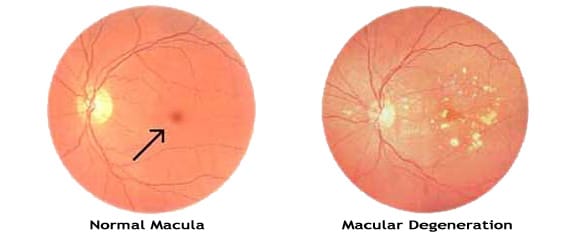
- Progression Rates:
- 10-15% of dry AMD cases progress to advanced stages
- Wet AMD can cause rapid vision loss within months if untreated
- 68% of AMD patients experience depression or anxiety
- Support groups can reduce psychological impact by 40%
- Counselling and adaptive skill training recommended
Dietary Impact & Supplement Effectiveness
Emerging Treatment Frontiers
- Genetic Research Breakthroughs
Recent genetic studies have identified:
- Over 34 genetic variants are associated with AMD risk
- Potential for personalized treatment approaches
- Promising gene therapy trials targeting specific genetic markers
- Technological Innovations: Implantable Miniature Telescope
- Approved for end-stage AMD patients
- It provides up to 3x visual magnification
- The success rate of improved vision in 90% of patients
- Artificial Intelligence Screening
- Machine learning algorithms can now detect early AMD signs
- 92% accuracy in predicting AMD progression
- Potential for earlier interventions
Patient Empowerment Strategies
Comprehensive Management Approach
- Regular Monitoring
- Quarterly eye examinations
- Advanced imaging techniques
- Early detection of changes
- Holistic Health Integration
- Cardiovascular health management
- Blood pressure control
- Diabetes management
- Cholesterol regulation
- Adaptive Technologies
- Specialized reading glasses
- High-contrast reading materials
- Digital reading aids
- Voice-to-text technologies
Conclusion
Macular degeneration is a complex condition but is not a hopeless diagnosis. Through ongoing research and implementing prevention strategies, individuals can take meaningful steps to protect and preserve their vision.
References
- Age-Related Eye Disease Study Research Group
- National Eye Institute
- American Macular Degeneration Foundation
- Centers for Disease Control and Prevention
- World Health Organization
- National Institutes of Health
- Recent Clinical Ophthalmology Research
- Current Ophthalmological Research Journals



